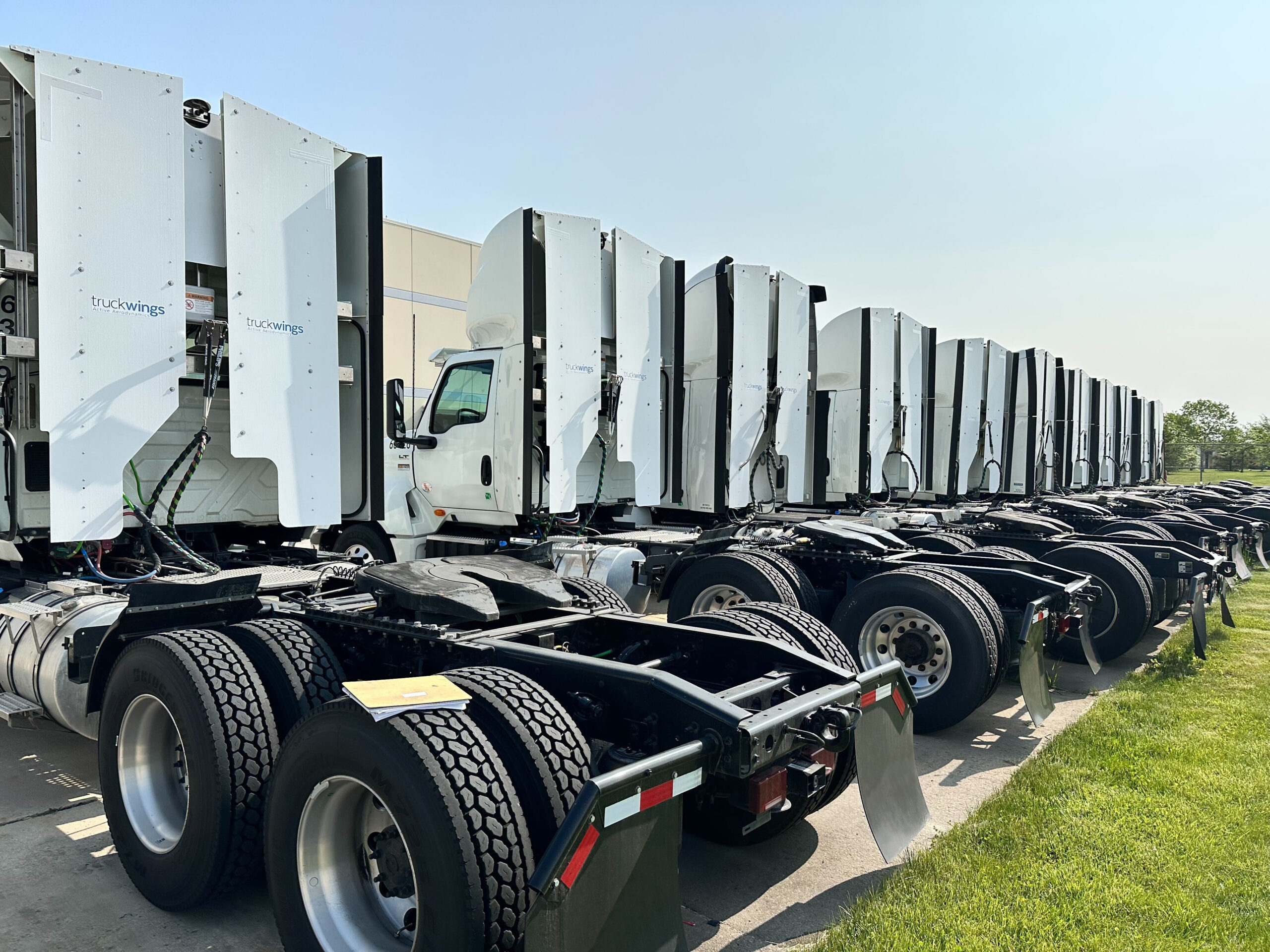Whether you’re managing a fleet of 20 or 200,000 vehicles, fleet management is essential for monitoring your fleet’s safety, productivity, and efficiency.
Managing a fleet is multifaceted — from taking care of vehicle maintenance and ensuring driver safety to planning routes and optimizing fuel consumption (an important task when gas accounts for 25% of costs). A fleet management system can help fleet managers save time, money, and effort while managing their fleet more efficiently.
Fleet management technology is a powerful tool. In this article, we’ll explore fleet technology, what to look for in a fleet management system, and some examples of how to use it to get the most out of your fleet.
What Is Fleet Management?
Fleet management is a term that comprises the actions and processes required to run a fleet that is efficient and cost-effective. It involves various tasks and responsibilities to optimize fleet performance, reduce operational costs, enhance safety, and comply with regulations.
Using fleet management, owners can increase their fleets’ productivity, extend the lifespan of their vehicles, and enhance overall operational efficiency.
The responsibility of fleet management falls to the fleet manager. Fleet managers oversee daily operations, ensuring they run smoothly and efficiently. Fleet managers’ tasks can involve hiring, purchasing vehicles, optimizing routes, and adhering to laws and regulations. Each fleet has its own tasks and challenges, making the fleet manager role unique.
What Is Fleet Technology and What Are Its Benefits?
Fleet technology refers to tools and technical solutions that assist in managing and optimizing fleets. These tools require an upfront cost but can result in a quick return on investment. They can also help with other essential factors, such as improving road safety.
Fleet technology helps managers optimize their fleets in several ways, including:
- Data analysis: Analyzing historical data and real-time data about drivers and their vehicles can reveal trends and opportunities for improvement.
- Fewer breakdowns: Well-maintained records and automated reminders simplify truck maintenance, resulting in less downtime.
- Improve driver safety: Monitoring driver behaviors encourages good driving habits and enhances road safety.
- Increase productivity: Monitoring delays, idle times, and downtime make it easier to spot and fix performance issues, improving efficiency.
What Features Should You Look for in Fleet Management Technology?
Fleet management technology is available in many forms. If you are looking for a fleet management system with comprehensive support, look for the following features:
- GPS tracking uses satellite technology or cellular networks to monitor vehicles. It can provide customizable alerts, real-time tracking, route optimization, and customer notifications.
- Fuel management can monitor fuel levels in real-time, provide insights into how long fuel lasts, and identify leaks.
- Notifications and alerts highlight to the fleet manager any severe situations that require attention immediately or may cause an issue in the future. Fleet managers can set up custom notifications and alerts based on their preferences.
- Fleet maintenance helps fleet managers identify vehicle issues so they can be addressed quickly and prevent long-term damage.
5 Use Cases for Fleet Management Software
With the fleet management market predicted to hit $52.50 billion by 2030, fleet management technology will become standard in the industry. The right fleet management software can make fleet management easier and more efficient. Here are five ways to use technology to help you manage your fleet.
1. Predicting Maintenance
Fleet management software can use historical data to help predict maintenance so you can proactively resolve issues before they happen, reducing vehicle downtime. The software helps gather fleet data from installed GPS trackers and sends it to the central system. AI models then analyze the data to determine when maintenance services such as brake inspections, oil changes, and tire rotations are necessary.
2. Improving Aerodynamics
Reducing gas expenses can result in significant savings for fleets. One way to help reduce fuel consumption is to install aerodynamic devices. Aerodynamic equipment like gap devices and boat tail fairings reduce drag, improve stability, and increase fuel efficiency. With fleet technology, fleet managers can gain insights into the effectiveness of these devices by examining how efficiently they work.
3. Monitoring and Alerting Drivers
Driver monitoring systems (DMS) are a type of fleet technology that can aid in improving driver behavior. These systems use a camera to detect any actions from a driver that could impair their driving, such as fatigue, talking on the phone, or smoking. When the tools see risky behavior, an in-cab alert notifies the driver and encourages safer driving habits.
4. Capturing Data and Insights
A significant part of fleet technology is capturing data to analyze fleet operations and suggest improvements. Fleet tools can collect data such as:
- Speeding events
- Heavy acceleration
- Aggressive cornering
- Vehicle maintenance info
- Unnecessary mileage
These data points can become actionable insights useful for fleet managers to anticipate future problems and develop solutions.
5. Planning Routes
Fleet management technology can also help fleet managers optimize routes. GPS and telematics report the real-time location of the fleet, allowing drivers to plan alternative paths if delays occur.
Additionally, the software can help plan the most efficient route. With the help of sophisticated algorithms, fleet technology can analyze multiple delivery locations, traffic patterns, and other factors to help reduce fuel consumption, delivery times, and wear and tear on the fleet.
Take Your Fleet to the Next Level With Fleet Management Technology
Fleet management technology can help a fleet reduce operating costs, such as fuel costs, vehicle breakdowns, and maintenance costs. Fuel is one of a fleet’s most expensive expenses, and investing in TruckWings can help — TruckWings improved Ryder’s mileage by 4.1%.
Check out TruckWings or contact us if you’d like to learn more about how fleet technology and improved aerodynamics can transform your business.

